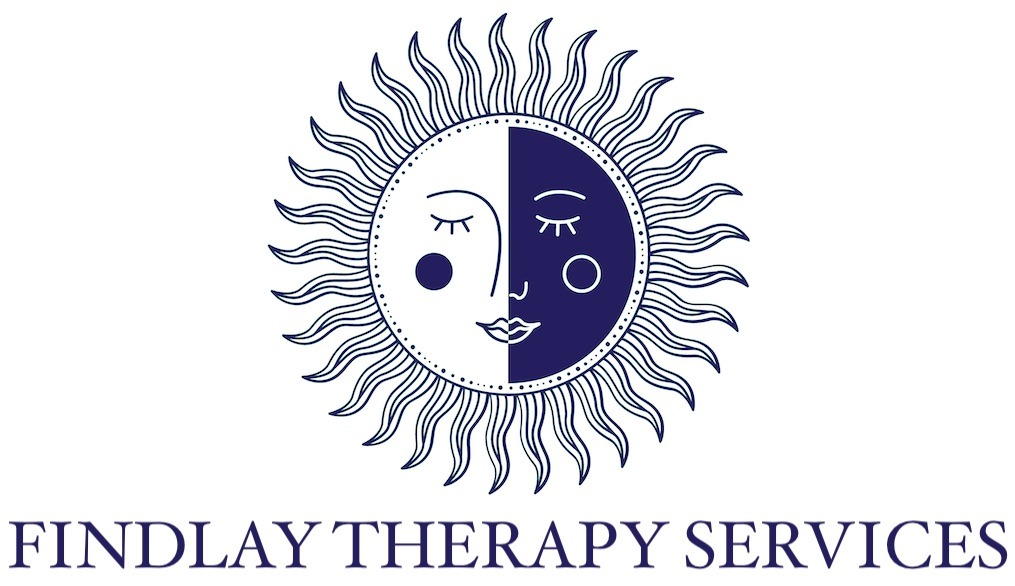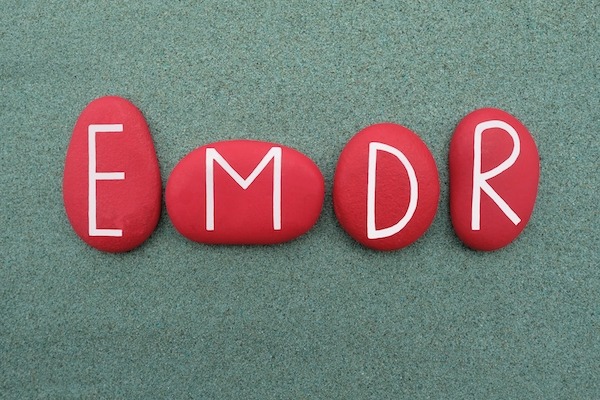Adult DBT Skills Group
If you struggle with anxiety, depression, anger, stressful relationships, trauma symptoms, or impulsivity, this group is for you.
Our DBT skills group can teach you concrete skills to improve your daily life. We focus on learning to be more present, understanding and overcoming relationship difficulties, improving overall mood, and getting through emotional crises.
This group meets virtually every Thursday from 6:00pm – 7:30pm and provides an opportunity to put these new skills into practice so you can create positive changes in your life of which you can be proud. This group is open to adults 18 and older who wish to learn skills to manage problematic internal emotions, to live more fully in the present moment, to communicate and express yourself effectively and to improve your ability to negotiate relationships.
What is Dialectical Behavioral Therapy (DBT)?
Dialectical Behavioral Therapy (DBT) was developed by Marsha Linehan. It is an effective, empirically supported, cognitive-therapy based intervention system for teaching skills that will help in coping with sudden, intense surges of emotion.
The foundational skills and dialectical approach of DBT will help individuals build self-control over impulsive behaviors and move away from all-or-nothing thinking to a more balanced approach with their internal emotional experience and external relationships.
What Will I Learn?
The group focuses on four areas: mindfulness, distress tolerance, emotion regulation, and interpersonal effectiveness. Mindfulness skills help decrease anxiety, distractibility, and judgmental thinking.
Distress tolerance skills improve one’s capacity to cope with stressful situations without becoming overwhelmed.
Emotional regulation skills help decrease up-and-down emotions.
Interpersonal effectiveness skills help decrease interpersonal conflict and stress, and improve relational satisfaction
What Does DBT Skills Group Look Like?
DBT Skills Group at Findlay Therapy Services is not a typical processing group, nor is it talk therapy. Our program consists of skills training modeled after the Linehan model.This group is designed to teach skills to help transform negative thinking and destructive behaviors into positive outcomes. This group is designed with a classroom setting in mind, with each virtual meeting structured to teach and practice skills in a group setting. The group is facilitated by Findlay Therapy Services’ Destinee Smith and co-facilitated by Jennifer Hansen, who are trained to educate and model the skills being taught each week by DBT-Trained therapist Christina Brooke, LCSW.
For example, the group would begin with a mindfulness exercise which would then be followed with a review of the previous week’s homework and diary card entry. From there, the group would begin the current week’s lesson. No prior knowledge is required for attendance – we only require an open mind and the willingness to try something new.
How Do I Attend Groups Virtually?
Individual and group Telehealth has shown to be highly successful during the Covid-19 Pandemic. DBT skills groups meet via Zoom on a secure platform and group sessions can be attended in the comfort of your home. Findlay Therapy Services acknowledges the benefits of using virtual sessions and groups for clients who live full and busy lives or are not located near our office. Telehealth allows you to never miss a session even if you are going on vacation, have work conflicts or are located out of town. You can continue attending your group sessions through Zoom which requires no money, just a simple download onto your computer, laptop or mobile device.
The DBT Skills Group Process
DBT is a skills/teaching group, not a process group.
First hour of group:
- Brief group introductions/opening
- Mindfulness Exercise
- Group leaders will review DBT Diary Cards and ask group members to give coaching, feedback, and observations about skills used in an effective way.
- Group members benefit from being exposed to hearing how other members are practicing skills.
Second hour of group:
- New DBT Skill introduced and taught.
- Multiple handouts, homework sheets, experiential exercises, board work, and discussions are used as learning tools.
- Group members are asked to practice this new skill over the week and to give feedback the following week on how this skill worked for them and what challenges occurred.
All of the DBT skills build on each other. The group lasts a total of 6 months to finish all of the modules (Mindfulness, Interpersonal Effectiveness, Emotional Regulation, and Distress Tolerance). The size of each DBT group is limited to a maximum of seven members to ensure enough time for all members to participate.
Group members are encouraged to be able to commit to 6 months of the group therapy, which meets once a week virtually, before joining the group.
Is There Evidence That This Intervention Works?
Yes! Multiple studies have found this intervention to be effective for people with several presenting problems.
ⓘ More information on Supporting Evidence
ⓘ Research on DBT
What is the Cost?
The initial consultation session and “The Linehan DBT Skills Training Handouts and Worksheets Book” is $125. Weekly skills group sessions are $50. Payment is required before each session and can be made by contacting Jennifer Hansen. Missed sessions are not refundable. Weekly payments may be made by cash or credit card. We require a credit card be placed on file before the initial consultation. Discounts are available when an 8-week module is paid in advance.
How Do I Join?
If you would like more information or to join the DBT Skills group, please call 214-618-0461 or email Jennifer@findlaytherapyservices.com to schedule an individual initial consultation
We do not allow group members to drop in and do one module at a time. The skills work in conjunction with each other and are most effective when learned in their entirety.
Findlay Therapy Services offers a comprehensive Adult DBT Skills Training Program, aimed at people 18 years old and above, who struggle with intense emotions, impulsive behaviors, relationship problems, and suicidal / parasuicidal behaviors. Our program consists of skills training modeled after the Linehan model.
Are There Any Other Requirements to Join?
DBT Skills Group participants must currently be meeting regularly with an individual therapist outside of the skills group in order to participate in the group . This can be any therapist at Findlay Therapy Servies or any other qualified therapist. We also require you to sign a release allowing us to talk with your therapist. The goal of this is to help you get the most out of the group. If you are interested in joining a DBT Skills group and don’t currently have an individual therapist, please call our office at 214-618-0461 to discuss options.
An initial consultation session is required prior to the beginning of the group.
Information For Referring Clinicians and Healthcare Providers
Why should I refer a client to Dialectical Behavior Therapy Skills Training?
Therapists not trained in Dialectical Behavior Therapy are often unaware of the specific benefits a client can receive from DBT skills Training. Dialectical Behavior Therapy as a modality is unique in its systematic approach to helping individuals with emotional regulation problems, particularly but not exclusively, those individuals with Borderline Personality Disorder (BPD). Dialectical Behavior Therapy views extreme thinking, behavior and emotions as the result of both motivation problems and capability deficits. It is this translation from motivation to action that is crucial to therapeutic success. DBT as a mechanism for such success has been rigorously researched in clinical settings.
While DBT Skills Training can be offered individually, it is most powerful and effective in group settings. Either way, it is a necessary component of treatment for individuals with Borderline Personality Disorder or serious emotional regulation difficulties. Clients attend Skills Training weekly for up to a year or more, while remaining in individual psychotherapy. Skills Training includes a system of diary records, homework, and group accountability and is led by a trained DBT Skills Trainer.
I have worked with my client for years yet I know she could benefit from skills training. If I refer my client to Findlay Therapy Services to attend DBT Skills Group, how do I know I won’t lose my client permanently?
- If a client who is not in individual therapy is referred to us for DBT Skills, we will refer to one of our our therapists or other provider’s that we have had experience working with.
- If you believe your client would benefit from DBT skills training and you are to remain that client’s individual therapist, our skills trainer will work collaboratively with you. Findlay Therapy Services requires each group participant to have a signed Release of Information to allow our collaboration throughout the group.
- We provide a contract with each therapists who refer their clients to skills groups. The contract outlines the course of the skills training. It is common for our skills trainers to consult with individual therapists periodically to review client progress, provide skill updates and resources. Findlay Therapy Services believes in supporting fellow therapists with DBT Skills resources and updates. We are here to support you too!
In my psychiatry practice I have heard of DBT. I treat the symptoms of Bipolar disorder, anxiety, depression and Borderline Personality Disorder. What is the advantage of referring clients to a DBT Skills Training group?
We believe that clients who learn how to regulate their own emotions show improved medication compliance. Clients with certain complex and difficult to medicate conditions such as Bipolar Disorder and OCD are especially good candidates for DBT skills training. They learn mindfulness skills to help them notice feeling states, and they learn interpersonal effectiveness skills and distress tolerance skills which will assist them in better communication with their doctors about their medication programs.
Contact Jennifer Hansen at (214) 618-0461 if you wish to make a referral or require more detailed information. If you wish to consult about a case to determine if a referral to DBT is the appropriate intervention for your client, contact Christina Brooke LCSW at (469)360-3177.
From Our Blog
Why Moms Aren’t Cool, Never Will Be, and Why They Should Relish It!
Moms aren't cool, and they never will be. What’s cool today wasn’t cool last year and most likely won’t be cool next year. “Cool” is transitory, it comes and it goes,
EMDR: The Lion, the Witch, and the Filing Cabinet
Ever wonder why, when you look back, some memories are hazy and some are clear? Some memories may feel positive or neutral and some feel negative and distressing. Let’s explore t
First Responder Counseling
If you’re a First Responder who is seeking a safe space to vent and process work or even home life distress, I am here for you. Your career path is rewarding, but it also causes
Considering Polyamory?
Polyamory is the practice of being in multiple romantic relationships at the same time, with the knowledge and consent of all partners involved. It is a form of consensual non-mono
Anger: The Misunderstood One
Is all anger bad? Nope. Not at all. Anger is neither good nor bad - it just is. We can’t assign labels like good emotions or bad emotions because all emotions have a purpose. For
Do you want to attend therapy, but your partner refuses?
There could be many reasons that an individual does not want to attend couples therapy, understanding this is key. Try calmly talking with your spouse or partner regarding their re
Losing your Creativity
Something I’ve observed more than once when working with people who rely on their creativity for their careers, is that as we reach closer to the sources of their distress and fi
Absentmindedness in Children
Many times, parents complain of their children being absentminded and worry they may have ADHD or another disorder. After listening to the story and what is going on several thin










